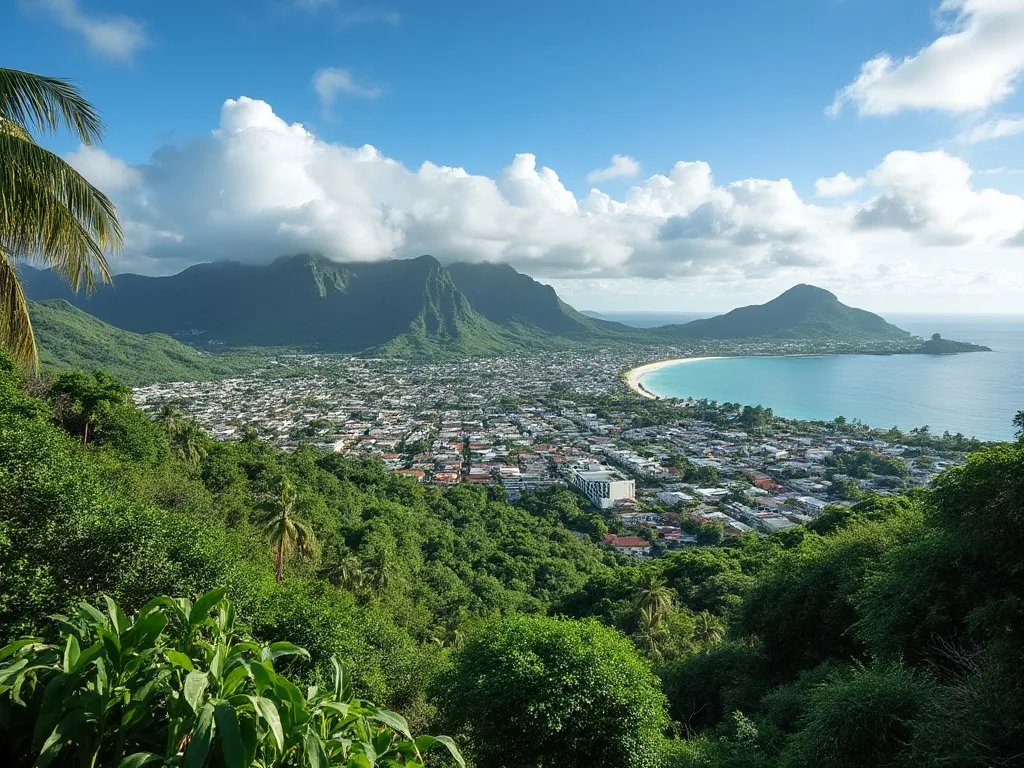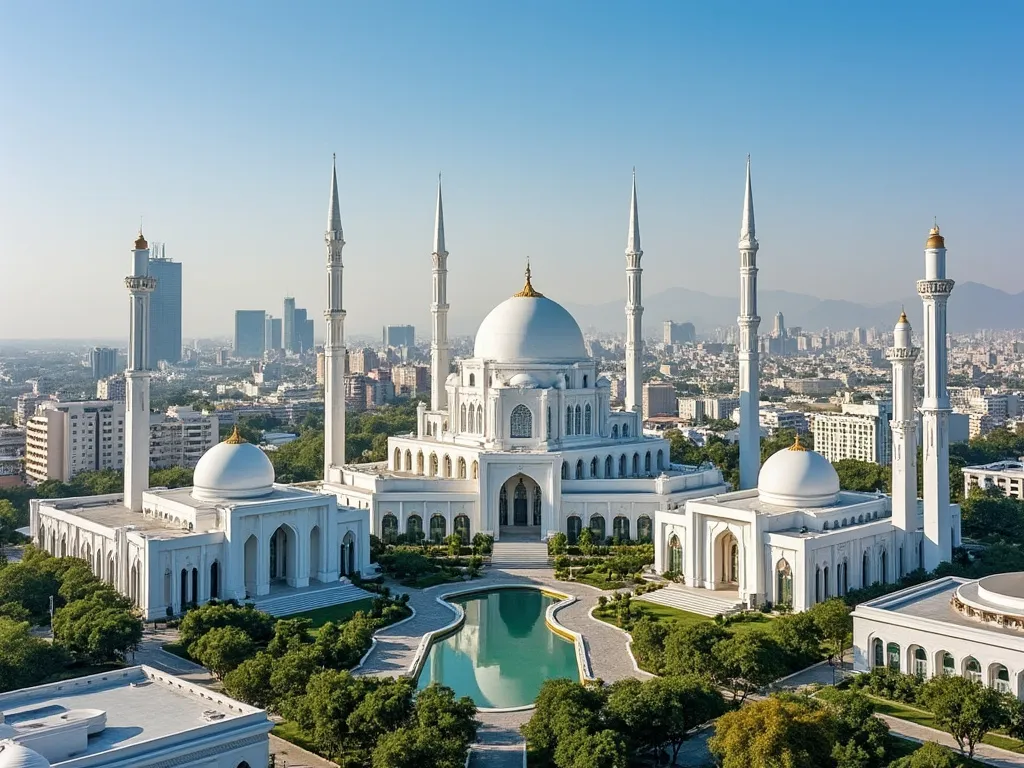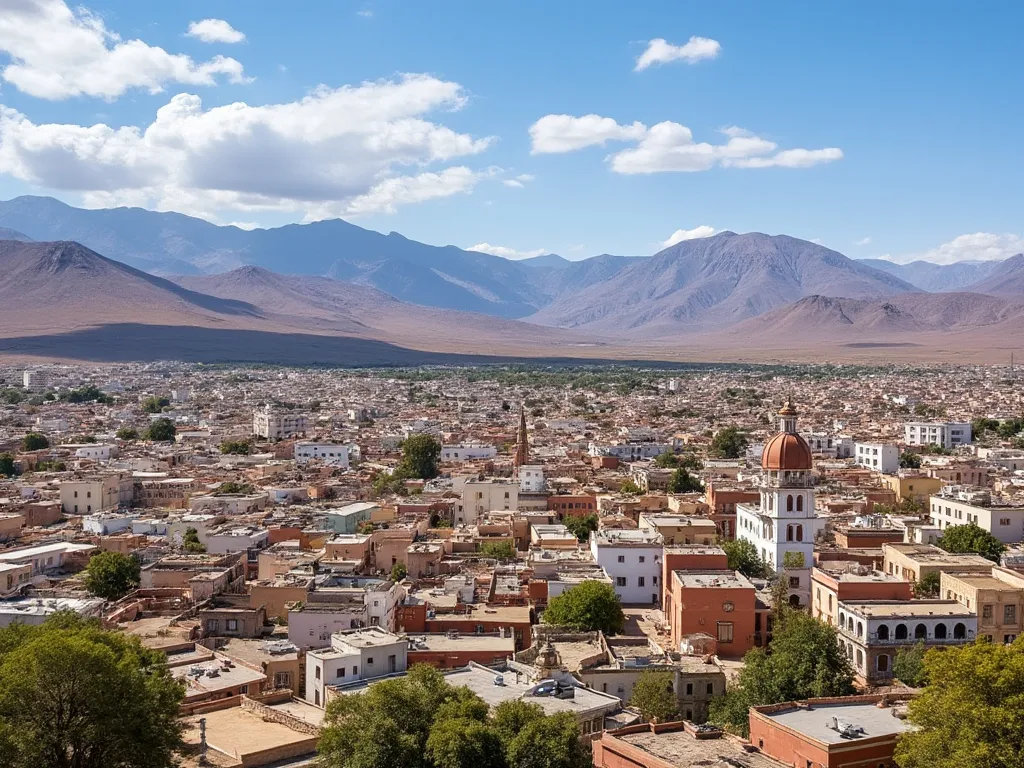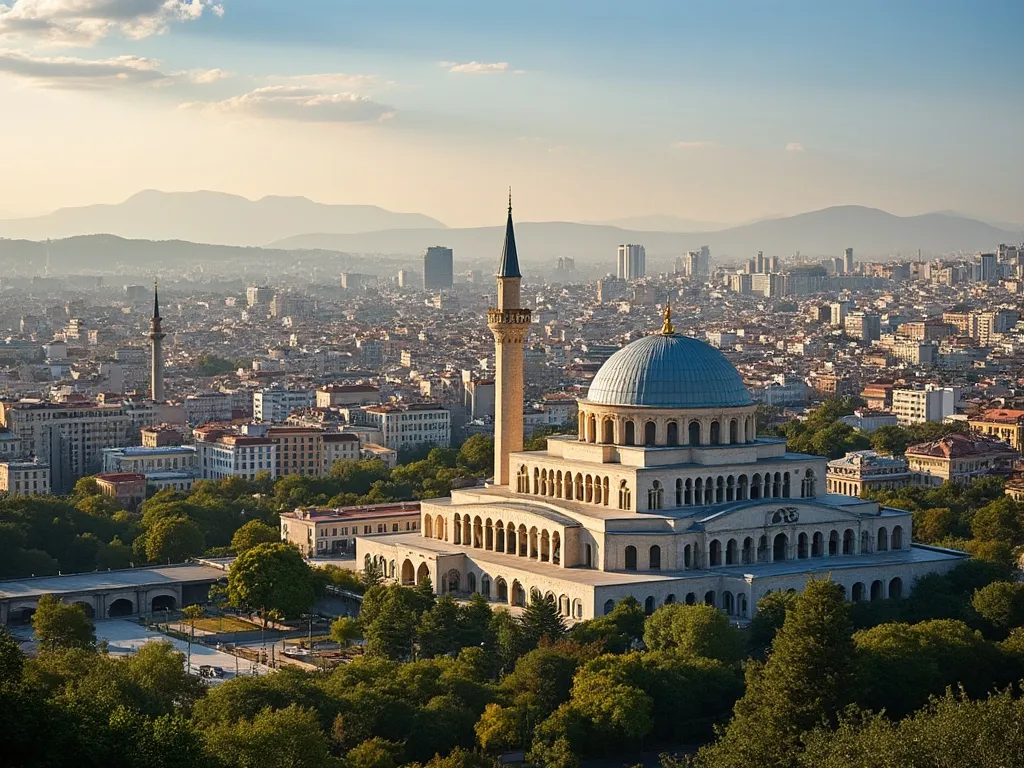
Apia, the capital and largest city of Samoa, is a picturesque coastal settlement nestled on the north coast of Upolu, Samoa's second-largest island. This vibrant city serves as the country's chief port and economic center, blending Polynesian culture with colonial influences. With its stunning natural beauty, rich history, and warm hospitality, Apia offers visitors a unique glimpse into the heart of Samoan life and the broader South Pacific region.
Apia information
| Country | 🇼🇸 Samoa |
| Population | 36,735 (2016 estimate) |
| Coordinates | 13°50′S 171°45′W |
| Area | 61.7 km² (23.8 sq mi) |
| Climate | Tropical rainforest climate (Köppen: Af) |
| Language | Samoan, English |
| Currency | Samoan tālā (WST) |
| Time zone | UTC+13 |
| Proximity to other major cities | Suva (Fiji): 1,171 km, Pago Pago (American Samoa): 123 km, Nuku'alofa (Tonga): 865 km |
Interesting facts about Apia
- Apia was the first city in the world to enter the year 2000, following Samoa's decision to move to the west of the International Date Line in 2011
- The city is home to the world's smallest national university, the National University of Samoa
- Apia hosted the 2007 South Pacific Games and the 2019 Pacific Games
- The famous Scottish author Robert Louis Stevenson spent his last years in Apia and is buried on Mount Vaea, overlooking the city
- Apia's colorful flea market, Maketi Fou, is one of the largest in the South Pacific
Tourist attractions in Apia
Apia offers a range of attractions for visitors, combining natural beauty with cultural and historical sites:
- Mulinu'u Peninsula: Home to the Parliament House and other government buildings
- Palolo Deep Marine Reserve: A popular spot for snorkeling and diving
- Immaculate Conception of Mary Cathedral: A beautiful example of colonial architecture
- Robert Louis Stevenson Museum: The former home of the famous author, now a museum
- Papaseea Sliding Rocks: Natural rock waterslides in the rainforest near Apia
- Apia Park: The national stadium, often hosting rugby matches and cultural events
Historical background of Apia
The history of Apia dates back centuries, with the area long inhabited by Samoan people. However, its prominence as a modern settlement began in the mid-19th century when European traders and missionaries arrived. Apia became the center of colonial administration in Samoa, with Germany, Britain, and the United States all vying for influence in the late 19th century.
A significant moment in Apia's history occurred in 1889 when a massive cyclone destroyed six warships (three American, three German) in Apia harbor, a event that helped ease tensions between the colonial powers. Samoa gained independence in 1962, with Apia becoming the capital of the newly formed nation.
Geographical location of Apia
Apia is located on the northern coast of Upolu, Samoa's most populous island. The city is situated on a natural harbor, which has played a crucial role in its development as Samoa's primary port. Surrounded by lush tropical vegetation and framed by volcanic mountains, Apia's geography is characterized by its coastal lowlands and nearby rainforests.
The city's tropical location contributes to its year-round warm temperatures and high humidity, with abundant rainfall supporting the verdant landscape that is characteristic of the region.
Cultural significance of Apia
As the capital of Samoa, Apia serves as the cultural and political heart of the nation. The city is a vibrant center of Samoan culture, where traditional Polynesian customs blend seamlessly with modern influences. Some key cultural aspects include:
- Fa'a Samoa: The Samoan way of life, emphasizing respect, family, and community
- Traditional dance and music performances, often showcased in cultural shows
- The practice of tatau (traditional Samoan tattooing)
- Regular ava (kava) ceremonies, an important social ritual
Apia is home to several important cultural institutions, including the Museum of Samoa and the Robert Louis Stevenson Museum, dedicated to the famous author who spent his final years in Samoa.
Economic importance of Apia
As Samoa's capital and largest city, Apia plays a crucial role in the country's economy. Key economic sectors include:
- Tourism: A major contributor to the local economy, with Apia serving as a gateway for visitors
- Port operations: Apia's harbor is vital for Samoa's import and export activities
- Government services: As the capital, Apia is the center of Samoa's public administration
- Retail and services: The city hosts numerous markets, shops, and businesses serving both locals and tourists
- Agriculture: While not directly in the city, nearby plantations contribute to the local economy
Conclusion on Apia
Apia, with its rich cultural heritage, stunning natural surroundings, and warm Polynesian hospitality, stands as a jewel in the South Pacific. As the capital of Samoa, it plays a vital role in the nation's political, economic, and cultural life. While embracing modernity and development, Apia has managed to retain its traditional Samoan character, offering visitors a unique blend of old and new. From its historical sites to its vibrant markets and beautiful beaches, Apia provides a gateway to experiencing the essence of Samoa and the broader Polynesian culture.
 Ashgabat
Ashgabat
 Asmara
Asmara
 Ankara
Ankara
 Antananarivo
Antananarivo